MercoPress. South Atlantic News Agency
Tag: Joaquim Levy
-
Tuesday, February 3rd 2015 - 06:49 UTC
Brazil's nominal budget deficit far worse than expected, 6.7% of GDP
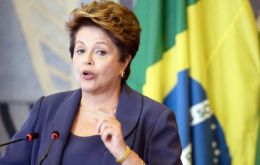
Brazil's federal, state and local governments ended 2014 with a cumulative primary budget deficit equivalent to 12.51 billion dollars putting public finances in the red for the first time since the current reporting methodology was adopted in 2001, the Central Bank announced.
-
Tuesday, January 20th 2015 - 05:48 UTC
Party is over in Brazil: increase in fuel, tax on consumer loans and imports
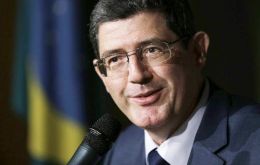
Brazil on Monday announced tax increases on fuel, imports and consumer loans aimed at raising 20.6 billion Reais (7.7bn dollars) in additional revenues this year. The plan is part of an effort to help balance budget accounts and revive investor confidence, Finance Minister Joaquim Levy said at a news conference.
-
Wednesday, January 14th 2015 - 09:19 UTC
Brazil anticipates 'program of targeted tax increases' and 'fare realism' for power and fuel

Brazil's finance minister said on Tuesday a program of targeted tax increases was designed with the intention to not harm fragile growth in Latin America's largest economy. Joaquim Levy also pledged 'fare realism' for electricity bills and fuel prices based on 'business reasons'.
-
Tuesday, January 6th 2015 - 07:32 UTC
Brazil' finance minister pledges fiscal balance and cuts in spending

Brazil must focus on making difficult fiscal adjustments in order to get economic growth and investment back in gear, the country's new Finance Minister Joaquim Levy said on Monday. At his swearing-in ceremony in Brasilia, Levy said the process will require the participation of society as a whole and will involve changes to taxes and spending, without resorting to accounting shortcuts.
-
Wednesday, December 31st 2014 - 05:31 UTC
Brazil limits social benefits; admits it will miss 2014 fiscal target by wide margin
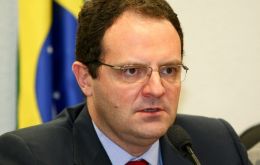
The Brazilian government announced it will limit unemployment and pension benefits as part of its plans to shore up depleted finances and regain investor confidence. Likewise the Central bank said that following a fourth year of low growth, Brazil will miss its fiscal target for 2014 by a wide margin.
-
Monday, December 8th 2014 - 11:12 UTC
Dilma Rousseff after quick transition in Finance given the fiscal deterioration

Brazil's new economic team headed by Joaquim Levy is expected to take office sometime in the next few days after the ruling coalition of President Dilma Rousseff finally managed Congress to approve a loosening of this year's budget targets including the crucial primary budget.
-
Thursday, December 4th 2014 - 05:09 UTC
Rousseff promises JPMorgan investors a balanced budget and full support of Levy
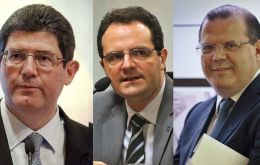
President Dilma Rousseff said in a letter to investors that one of the main priorities of her second term will be to put Brazil's fiscal accounts in order, sending a strong message that her administration will adopt more market-friendly policies.
-
Tuesday, December 2nd 2014 - 06:01 UTC
Rousseff names another market-friendly minister to her new cabinet
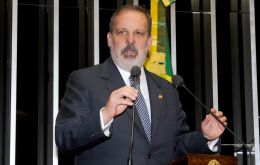
Brazilian President Dilma Rousseff has named business leader Armando Monteiro to head the industry and trade ministry in a new sign of more market-friendly policies as she tries to restore investor confidence and reignite economic growth.
-
Friday, November 28th 2014 - 06:46 UTC
New Brazilian minister pledges realistic fiscal targets and balanced economic growth
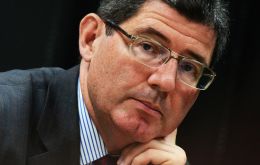
Brazilian President Dilma Rousseff finally announced on Thursday the appointment of Joaquim Levy, as her next Finance minister who is also known as the 'scissors man', who pledged more realistic fiscal targets and promised more balanced economic growth.
